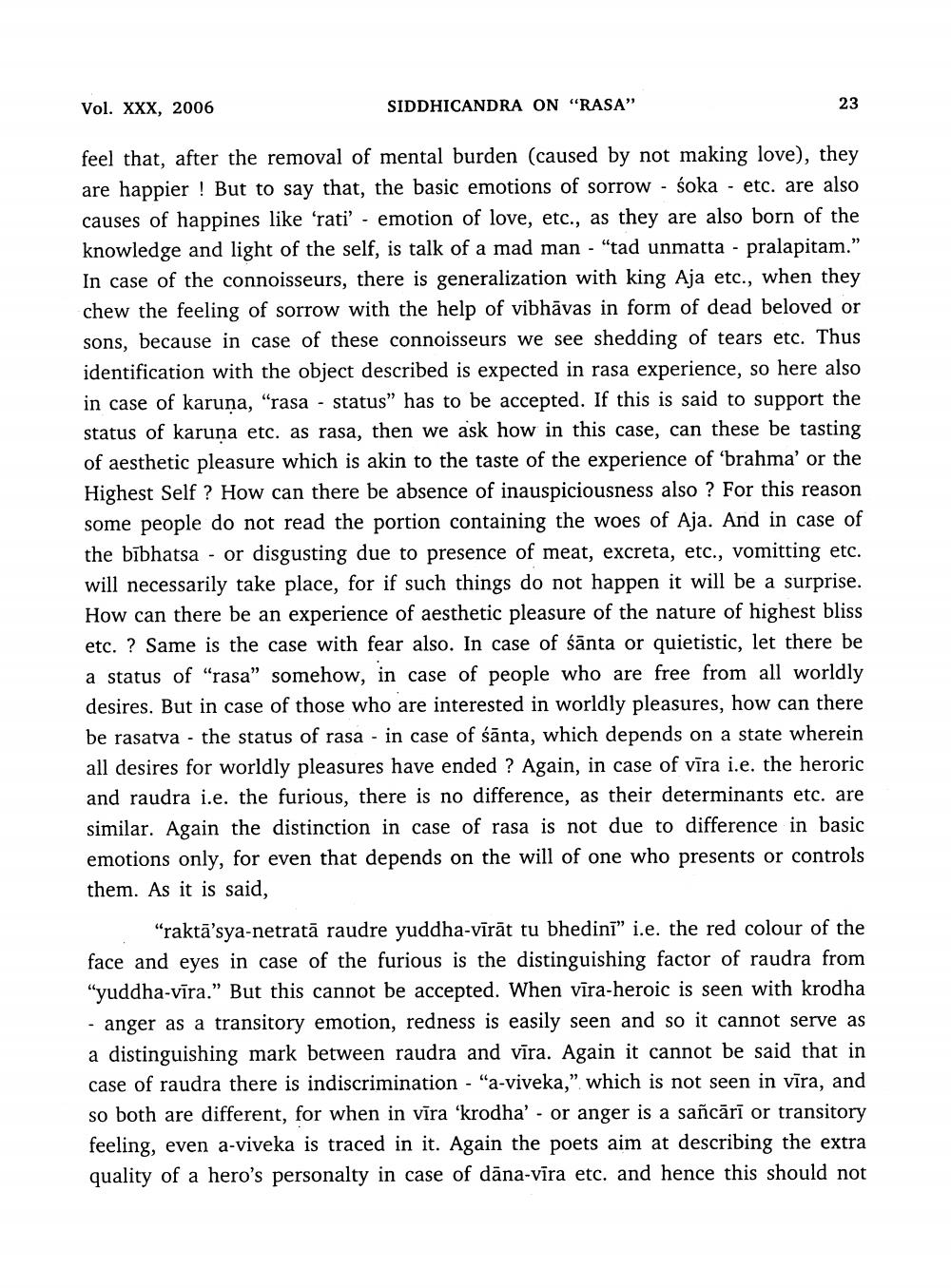________________
Vol. XXX, 2006
SIDDHICANDRA ON "RASA”
23
feel that, after the removal of mental burden (caused by not making love), they are happier ! But to say that, the basic emotions of sorrow - śoka - etc. are also causes of happines like 'rati' - emotion of love, etc., as they are also born of the knowledge and light of the self, is talk of a mad man - "tad unmatta - pralapitam.” In case of the connoisseurs, there is generalization with king Aja etc., when they chew the feeling of sorrow with the help of vibhāvas in form of dead beloved or sons, because in case of these connoisseurs we see shedding of tears etc. Thus identification with the object described is expected in rasa experience, so here also in case of karuna, "rasa - status" has to be accepted. If this is said to support the status of karuna etc. as rasa, then we ask how in this case, can these be tasting of aesthetic pleasure which is akin to the taste of the experience of 'brahma' or the Highest Self ? How can there be absence of inauspiciousness also ? For this reason some people do not read the portion containing the woes of Aja. And in case of the bībhatsa - or disgusting due to presence of meat, excreta, etc., vomitting etc. will necessarily take place, for if such things do not happen it will be a surprise. How can there be an experience of aesthetic pleasure of the nature of highest bliss etc. ? Same is the case with fear also. In case of śānta or quietistic, let there be a status of “rasa" somehow, in case of people who are free from all worldly desires. But in case of those who are interested in worldly pleasures, how can there be rasatva - the status of rasa - in case of śānta, which depends on a state wherein all desires for worldly pleasures have ended ? Again, in case of vīra i.e. the heroric and raudra i.e. the furious, there is no difference, as their determinants etc. are similar. Again the distinction in case of rasa is not due to difference in basic emotions only, for even that depends on the will of one who presents or controls them. As it is said,
“raktā’sya-netratā raudre yuddha-vīrāt tu bhedini” i.e. the red colour of the face and eyes in case of the furious is the distinguishing factor of raudra from "yuddha-vīra.” But this cannot be accepted. When vīra-heroic is seen with krodha - anger as a transitory emotion, redness is easily seen and so it cannot serve as a distinguishing mark between raudra and vīra. Again it cannot be said that in case of raudra there is indiscrimination - "a-viveka,” which is not seen in vīra, and so both are different, for when in vīra ‘krodha' - or anger is a sancārī or transitory feeling, even a-viveka is traced in it. Again the poets aim at describing the extra quality of a hero's personalty in case of dāna-vīra etc. and hence this should not




